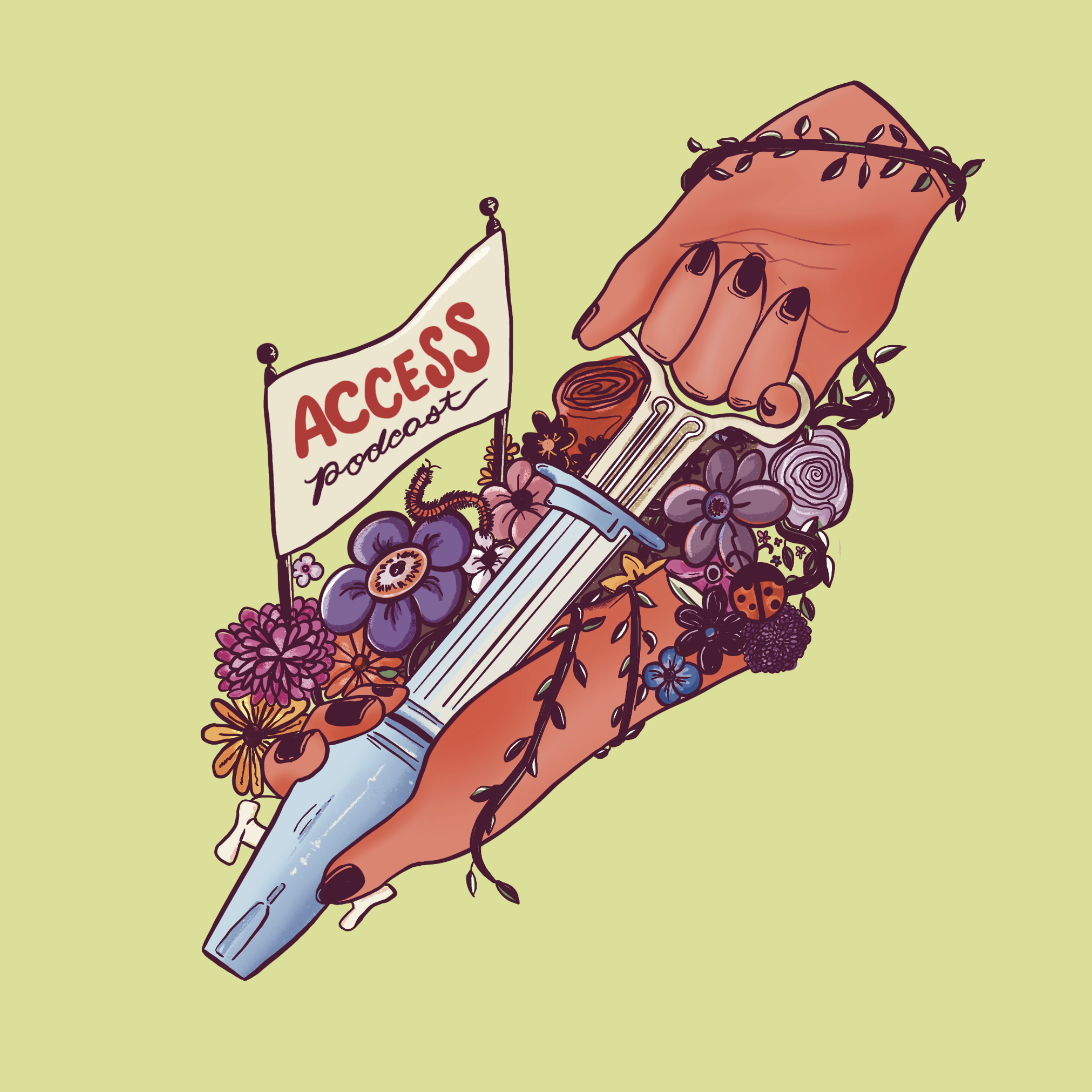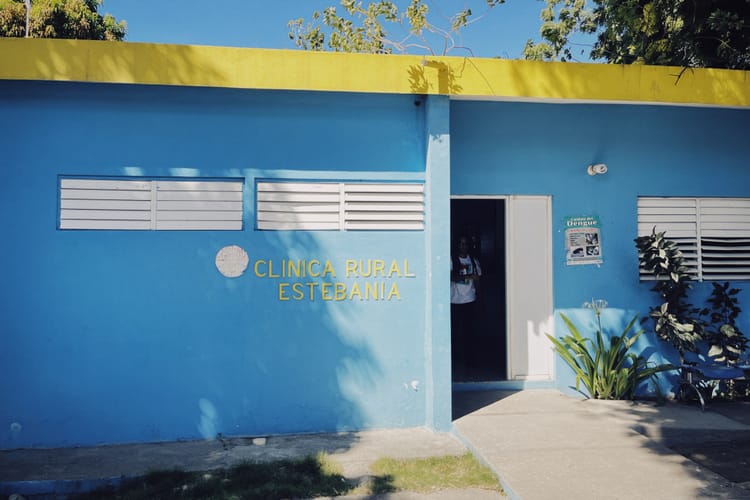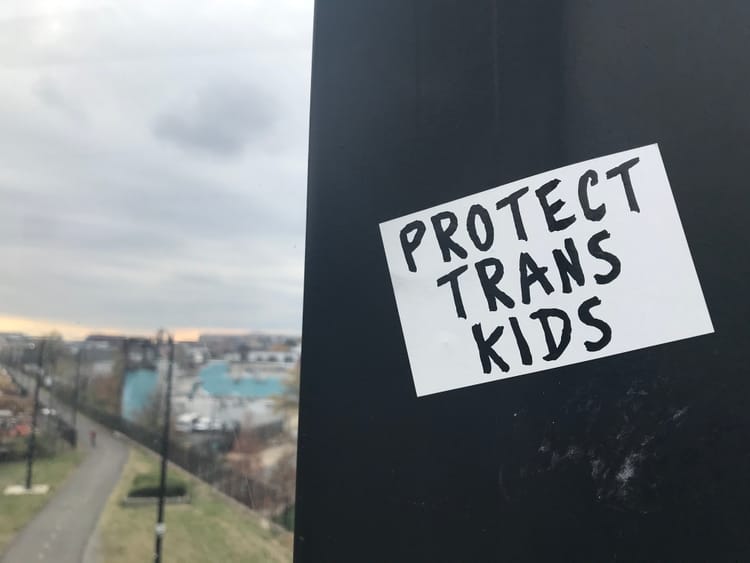The Post-Roe Information Wars
On June 24, 2022, following the expected but nevertheless crushing news that the Supreme Court had overturned Roe v. Wade, the first person I spoke with was Mia Raven. Mia calls herself “the Alabama abortion lady,” and it’s true: she’s been one of the state’s most visible abortion rights activists for a decade. When the decision came down, Alabama was one of the states where abortion care halted immediately. Mia went straight to Reproductive Health Services, the clinic where she worked and volunteered, to keep watch in the parking lot.
It’s a scary time to be an abortion lady in Alabama, where the attorney general has asserted that the state’s criminal accessory and conspiracy laws could allow him to prosecute someone for even talking about abortion under Alabama’s ban, which makes providing an abortion at any stage of pregnancy a felony punishable by life in prison.
But on that awful day, Mia told me she wasn’t going anywhere. She said she was determined to keep the POWER House, a reproductive justice organization she founded next door to the clinic, open. Protesters and an ultrasound bus operated by a crisis pregnancy center were bound to keep showing up, hoping to misdirect abortion seekers desperate for help after the clinic’s closure. So she wanted to be there, too, holding her ground as the “pro-choice answer to a crisis pregnancy center.”
Recently, I checked in with Mia in a piece for ELLE Magazine. Her predictions were spot on: the ultrasound bus still parks across the street every day, and protesters have continued to show up. (One even hides in the trees near the clinic like she’s trying to spot illegal activity.) And the POWER House is still open, run entirely by volunteers and providing information carefully vetted by a criminal attorney.
Because so many people are seeking out information about abortion (and everything else) online, I also spoke with the co-founder of I Need an A, a site that started as a resource to connect abortion seekers to clinics, and is expanding its offerings to combat disinformation online and help people navigate this incredibly confusing legal landscape.
Speaking of crisis pregnancy centers and their manipulative, misleading tactics, at Rewire News Group I asked, why aren’t funders investing in more alternatives? Yes, many people go to crisis pregnancy centers thinking they’re visiting legitimate abortion clinics. But research tells us that many people know exactly what CPCs are and go there anyway, because they can’t afford to go anywhere else. Nearly every reproductive justice advocate I’ve interviewed this year has mentioned the pressing need for free ultrasounds and pregnancy tests, and for those continuing their pregnancies, baby supplies. Particularly in rural areas, CPCs are often the only places in town offering these kinds of services, and the truth is they aren’t really free—they come with awfully long strings attached. Abortion clinics and other reproductive justice organizations would like to help, but they desperately need more money in order to do so. If nothing else you should read this piece to hear a personal story about visiting a CPC from Laurie Bertram Roberts, a mom of eight and one of the fiercest reproductive justice advocates out there.
Finally, two of my recent pieces for Truthout are ones I’m particularly proud of. The first focuses on the rapid proliferation of for-profit telehealth abortion businesses. There’s no question that telemedicine abortion care is a game-changing innovation. But are for-profit telemedicine companies really the best way to serve abortion seekers, the majority of whom are low-income people of color? Renee Bracey Sherman, founder of We Testify, had some great thoughts on this and drew an interesting parallel between abortion pills and legal marijuana.
Plus, I got to dig into some tips I had received about one telemedicine provider in particular called Abortion Telemedicine. Several sources reported serious concerns to me about the quality of services provided by this new company, which was founded by a doctor with no prior experience in abortion care. In the weeks since this article was published, I’ve already gotten tips about a yet another new telemedicine site that has popped up out of nowhere. There are so many legitimate telehealth services out there, but the potential for fraud and/or substandard care in this area is huge. It’s something I’ll be keeping an eye on!
Finally, I wrote about another topic that’s been heavy on my mind: the post-Roe birth control wars. On the one hand, there’s a growing trend of (mostly white, often Christian) social media influencers making unfounded claims about birth control being bad or dangerous as Republicans lay the groundwork to ban some methods of birth control. On the other hand, many people are feeling pressure to use birth control methods they otherwise might not choose because of the loss or potential loss of abortion rights in their state. The fact that people are making their contraceptive decisions under duress evokes our country’s very long and disturbing history of reproductive coercion and eugenics, particularly targeted toward people of color and disabled people.
To me, this all connects back to my story about Mia and the POWER House: When states ban abortion, and maybe soon birth control, people don’t just lose access to medical care. They lose access to reliable, unbiased information about contraception, pregnancy, abortion, parenting, and more. We have terrible sexual and reproductive health education in this country. On top of that, we have a health system that’s a nightmare to navigate, especially if you’re young, poor, or a person of color. Anti-abortion organizations know this and they exploit it, crisis pregnancy centers being perhaps the most visible example of how they do that. In order for people to have real reproductive choice, they first need access to all the information required to make those choices. There’s no shortage of medical providers and advocates working hard to make that a reality. But they’re outspent and outgunned by deep-pocketed anti-abortion organizations who are in good with state governments.
Every conversation I have in my reporting on abortion and contraceptive access these days comes back to one thing: money.
Speaking of money but in a more positive way, I’d like to end on a rare happy update (I don’t get many of those in my work). The workers at Planned Parenthood of Western Pennsylvania have finally ratified their first union contract after 20 long months of bargaining. Back in September, I spoke with one of the members of that union, Crystal Grabowski, about the underpayment and overwork she and her fellow clinic workers were facing. They won raises, a big bump in on-call pay, and expanded sick leave. I’m thrilled to see them win!
Thanks for reading Repro Report! Subscribe for free to receive new posts and support my work.
P.S. Have you seen the stunning new ACCESS Merch by Liberal Jane Illustration? Would make a great holiday gift, just saying!




